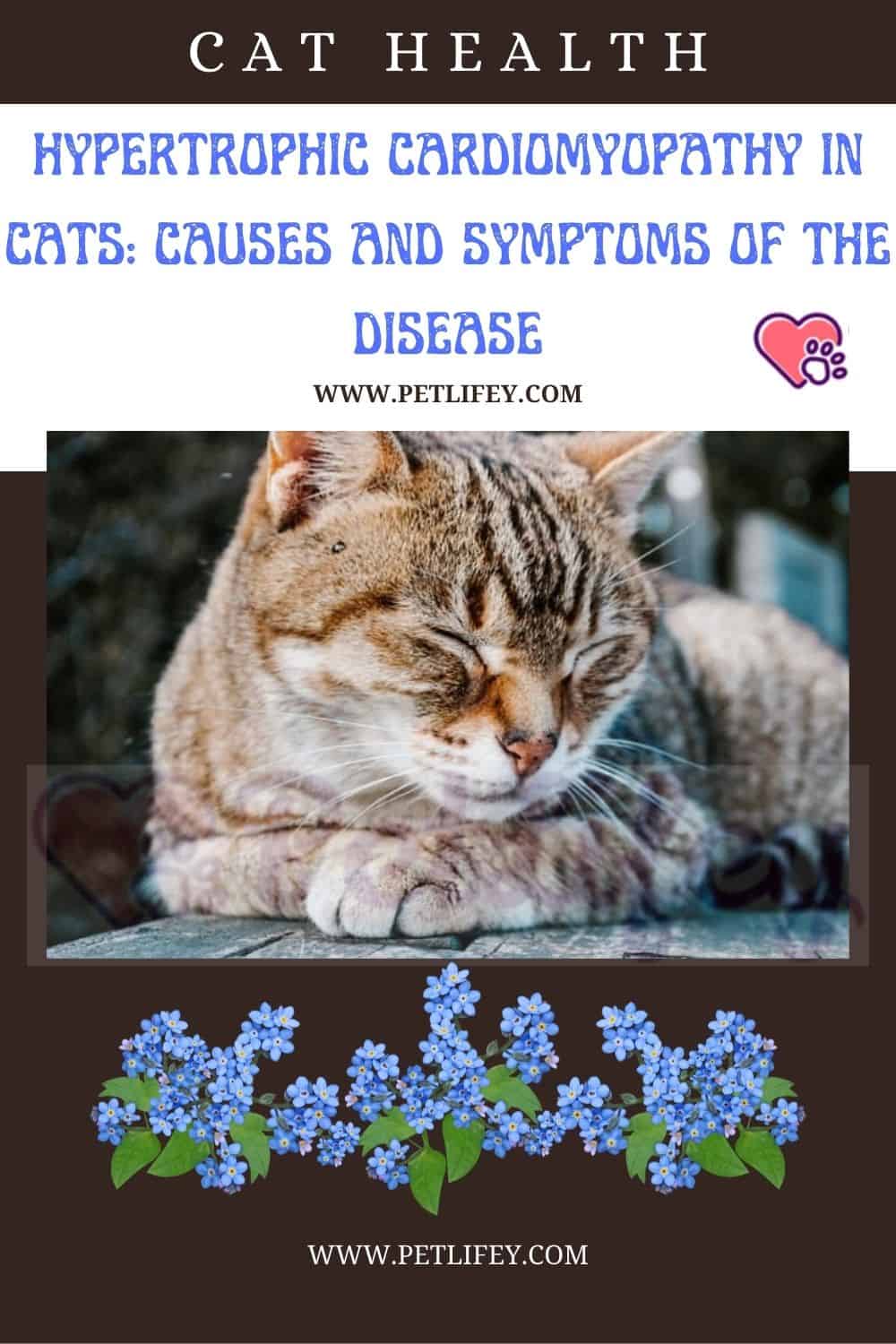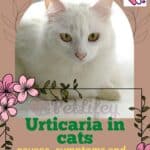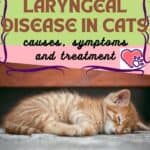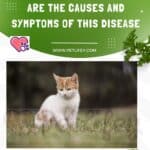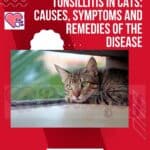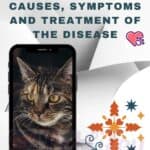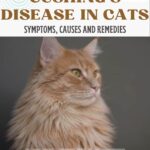Hypertrophic Cardiomyopathy in Cats: Understanding Causes and Identifying Symptoms
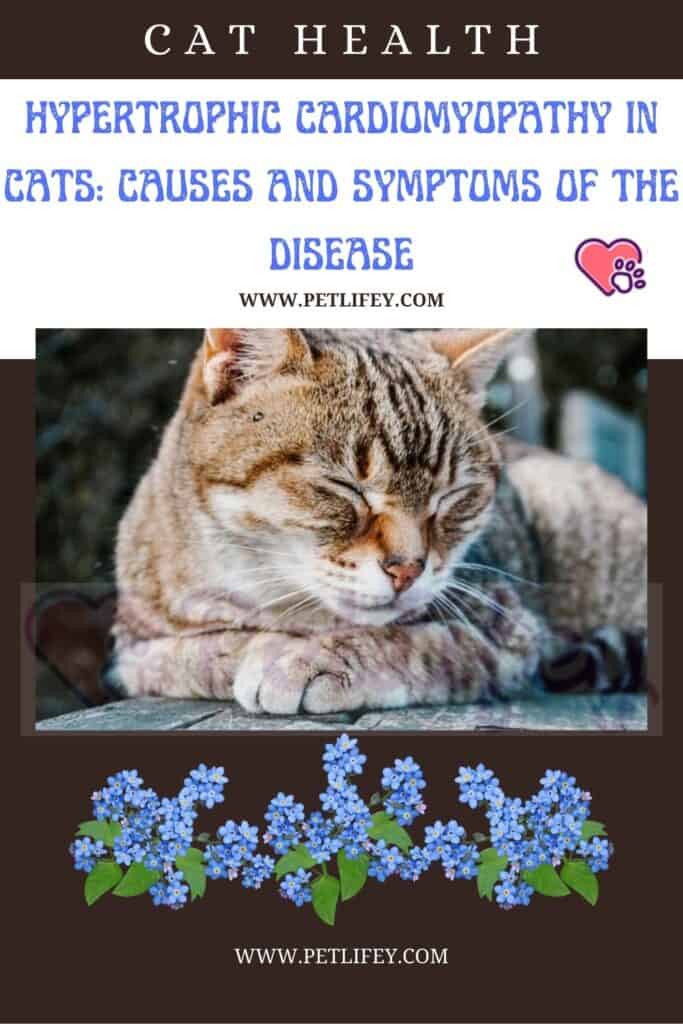
Hypertrophic cardiomyopathy, often referred to as HCM, is a significant health concern in cats and the most commonly diagnosed cardiac disease among felines. It’s characterized by the thickening of the heart’s muscular walls, particularly the ventricles, which can lead to a decrease in heart efficiency. This condition can be genetic, meaning some cats are inherently prone to developing HCM during their lifetimes. Symptoms are not always immediately apparent, making it a silent threat that might go undetected without proper screening.
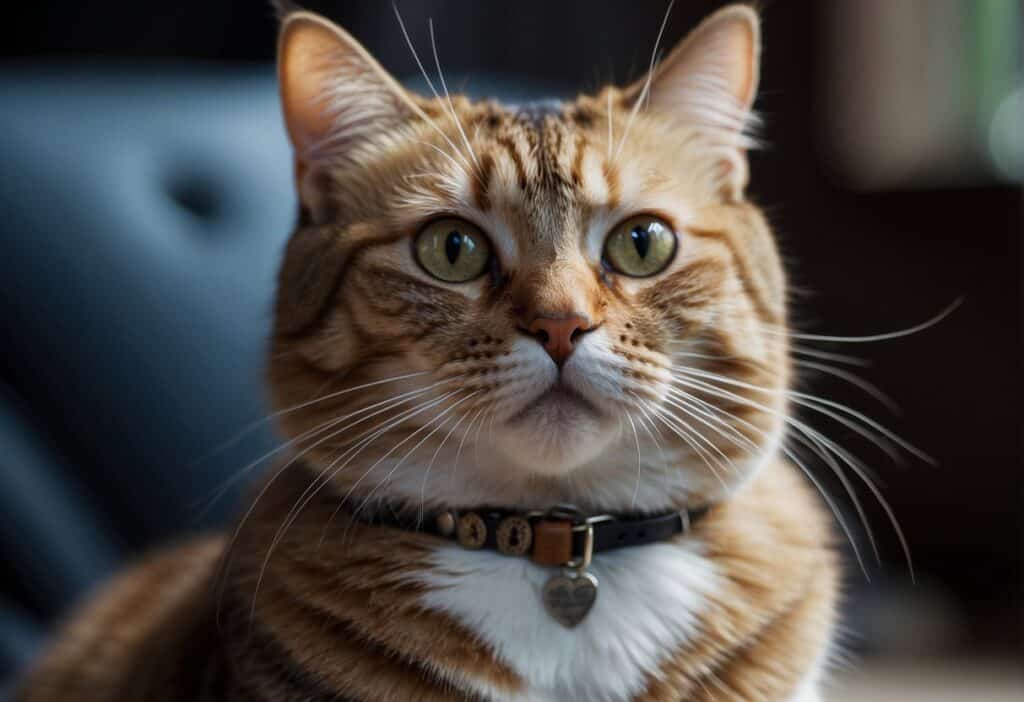
Your cat’s heart muscle works tirelessly, and when affected by HCM, its ability to pump blood effectively can be compromised. The disease often goes unnoticed because cats typically mask their illnesses well and may not show symptoms until the disease has progressed. In undiagnosed cases, the first indication of a problem might be severe, such as acute distress or even sudden death.
Understanding HCM’s possible causes and symptoms is crucial for early detection and managing your cat’s heart health. Regular veterinary check-ups are essential, especially if your cat falls into a higher risk category due to breed, age, or family history. If diagnosed early, various treatments are available to help manage the condition and maintain your cat’s quality of life.
Understanding Hypertrophic Cardiomyopathy
In hypertrophic cardiomyopathy (HCM), your cat’s heart muscle thickens, potentially leading to severe health complications. This section equips you with an understanding of what HCM is, its genetic roots, and the breeds that are commonly affected.
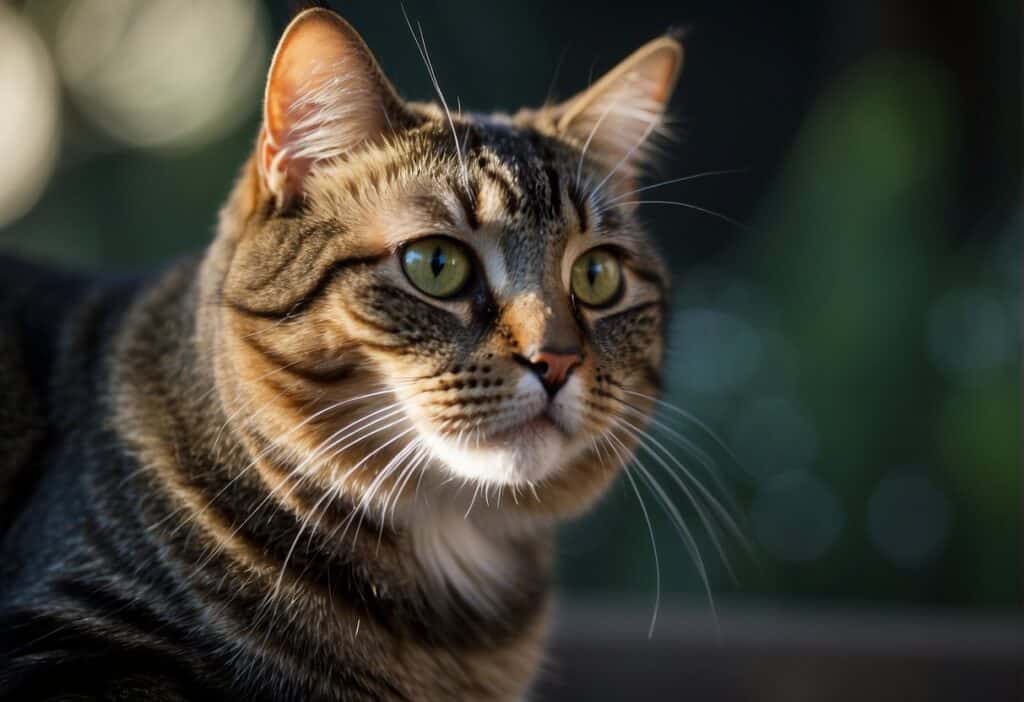
Definition and Pathophysiology
Hypertrophic cardiomyopathy is characterized by an abnormal thickening of your cat’s ventricular muscle walls, particularly the left ventricle. This thickening can reduce the efficiency of the heart and block or reduce blood flow from the left ventricle to the heart’s main artery, the aorta.
Genetic Factors
The condition is often linked to genetic mutations. These mutations affect the heart’s ability to function normally and can be passed down through generations, indicating a hereditary aspect of the disease.
Common Breeds Affected
Certain breeds are predisposed to HCM, including:
- Maine Coon: This breed may carry a specific mutation that increases the risk of developing HCM.
- Ragdoll: Similar to the Maine Coon, Ragdolls often have a genetic mutation correlated with a higher incidence of the disease.
- Other Breeds: While less common, breeds such as the American Shorthair and Sphynx can also be affected.
By understanding these components of HCM, you can better grasp the complexities of this heart condition affecting felines.
Causes of HCM in Cats
Hypertrophic cardiomyopathy (HCM) is a complex heart condition where genetics and other health factors play a significant role. By understanding the causes, you can be more aware of the risks and the importance of monitoring your cat’s cardiovascular health.
Role of Genetics
HCM in cats is frequently connected to a genetic predisposition. Certain breeds, such as Maine Coons, Ragdolls, British Shorthairs, Persians, and Chartreux, have a higher incidence of this condition:
- Maine Coons: A specific mutation in the MYBPC3 gene is common in Maine Coons, often leading to HCM.
- Ragdoll Cats: Ragdolls can carry a different mutation in the same MYBPC3 gene, predisposing them to this heart disease.
- Other Breeds: While specific genetic markers haven’t been as clearly identified for breeds like British Shorthairs, Persians, and Chartreux, they too exhibit a higher prevalence of HCM.
Regular screenings from a veterinarian, especially if your cat is from one of these breeds, can help in early detection and management.
Other Contributing Factors
Besides genetics, other health issues can contribute to the development of hypertrophic cardiomyopathy in cats:
- Hyperthyroidism: An overactive thyroid gland can lead to increased heart rate and blood pressure, which may, over time, contribute to the thickening of the heart’s muscular walls.
- High Blood Pressure: Chronic high blood pressure, or hypertension, can also place extra strain on the heart, possibly resulting in HCM.
- Acromegaly: Though less common, acromegaly, which is caused by excessive growth hormone, can lead to cardiac changes including HCM.
Management of these contributing factors is critical in the overall health and well-being of your cat, which is why routine veterinary check-ups are essential.
Identifying Symptoms
When your cat is affected by hypertrophic cardiomyopathy (HCM), being vigilant about changes in behavior and physical condition is vital. Recognizing symptoms early can be the difference between effective management and a crisis.
Early Stage Signs
In the early stages of HCM, you may notice subtle but important changes in your cat’s behavior and activity levels. Keep an eye out for:
- Decreased activity: If your cat appears less playful or lethargic, it could be a sign.
- Slight difficulty breathing: Watch for mild changes in breathing patterns or effort.
Advanced Stage Signs
As the disease progresses, signs become more pronounced and may include:
- Heart murmur or gallop rhythm: Detected by a veterinarian during a physical examination.
- Tachycardia (Increased heart rate): A rapid heartbeat that’s consistent might be observed.
- Hypertension (High blood pressure): Generally identified during a veterinary check-up.
- Pulmonary edema or pleural effusion: These manifestations of congestive heart failure involve fluid accumulation either in the lungs or chest cavity and can lead to pronounced breathing difficulties.
Crisis Symptoms
These symptoms indicate an emergent situation requiring immediate veterinary attention:
- Collapse or sudden weakness: This can be a sign of acute heart failure or severe arrhythmias.
- Paralysis in hind limbs (saddle thrombus): A blood clot can lead to sudden and painful paralysis of the back legs, which is an emergency.
- Extreme difficulty breathing or open-mouth breathing: These are signs of severe congestion or acute heart failure.
- Distended abdomen: Fluid accumulation due to heart failure can cause an obvious increase in abdominal girth.
- Sudden death: HCM can lead to unexpected death, even without previous symptoms.
If you observe any of these symptoms, particularly within the advanced stages and crisis categories, seek immediate veterinary care to give your cat the best chance for a positive outcome.
Diagnosis and Examination
When you suspect that your cat may have hypertrophic cardiomyopathy (HCM), accurate diagnosis is crucial. A series of examinations and tests are conducted to confirm the presence of the disease and to understand its progression.
Physical Examination
During the physical exam, your vet will look for signs that typically suggest HCM. These can include a heart murmur or irregular heart sounds, as well as signs of left atrial enlargement if present. However, your cat may be asymptomatic; hence, even without outward symptoms, further examination is necessary if HCM is suspected.
Diagnostic Imaging
Echocardiography, or an ultrasound of the heart, is the cornerstone of HCM diagnosis. This imaging technique details left atrium size and function, thickness of the heart walls, and overall heart performance. X-rays may be used to view the lungs for signs of heart failure, and an electrocardiogram (ECG or EKG) provides data on the electrical activity of the heart, which can be affected by HCM.
Blood Tests and Other Diagnostics
Although blood tests alone cannot diagnose HCM, they can help rule out other conditions and assess overall health. Some vets may perform tests to check for blood clots, a complication associated with HCM. Other diagnostics may include blood pressure measurement and tests for thyroid function, as these can influence or masquerade as signs of cardiac disease.
Treatment Options
When it comes to managing hypertrophic cardiomyopathy (HCM) in cats, treatment is aimed at controlling the symptoms and preventing complications. Here’s a closer look at how this can be achieved through medication, lifestyle adjustments specific to your cat’s needs, and if necessary, surgical interventions.
Medication
Medications are a cornerstone of treatment for cats with HCM to improve heart function and reduce risks of secondary complications such as thromboembolism. Common medications include:
- Beta-blockers like atenolol, which help control heart rate and improve heart muscle relaxation.
- Calcium channel blockers such as diltiazem, designed to decrease the heart’s contraction force and slow down the heart rate.
- Diuretics like furosemide to relieve symptoms of congestive heart failure by reducing fluid accumulation in the lungs.
- ACE inhibitors (e.g., benazepril) may be used to manage heart failure by improving blood flow and reducing blood pressure.
- Anti-thrombotic agents, such as clopidogrel or aspirin, are often prescribed to prevent blood clots.
Lifestyle Changes and Diet
Lifestyle and dietary adjustments can play a supportive role in your cat’s treatment plan. These may include:
- Reducing stress and minimizing exertion to decrease the demand on your cat’s heart.
- Implementing a low-sodium diet, which can help manage blood pressure and fluid build-up.
Surgery and Invasive Procedures
Surgery and invasive procedures as treatment for HCM are less common but may be considered in severe cases:
- In cases where blood clots have formed, surgical intervention to remove the clot may be necessary.
- Occasionally, if there is an obstruction to blood flow, procedures to reduce the thickened heart muscle may be contemplated.
Each cat’s treatment plan will be unique, so it’s essential to work closely with your veterinarian to tailor the therapy to your cat’s specific condition.
Management of Heart Failure
Managing heart failure in cats requires an understanding of the disease process and timely intervention. Treatment is tailored to relieve symptoms and prolong quality of life.
Recognizing Heart Failure
To effectively manage heart failure, you need to first recognize the signs. The central symptoms indicating heart failure include labored breathing, lethargy, and a persistent cough. During a physical examination, a veterinarian may find signs such as fluid buildup in the lungs or a heart murmur indicative of congestive heart failure.
Chronic Care
Chronic management of heart failure focuses on medical therapy to slow disease progression and improve heart function. Guidelines include:
- Medication: ACE inhibitors or beta-blockers to manage blood pressure and heart rate.
- Diuretics: To relieve fluid congestion, especially in the lungs.
- Nutrition: A low-salt diet can help reduce fluid retention.
It’s essential to monitor your cat’s weight and respiratory rate regularly as part of chronic care and adjust treatments as needed.
Emergency Care
In an emergency, immediate veterinary care is vital. Congestive heart failure can lead to life-threatening conditions like pleural effusion where fluid accumulates around the lungs or an acute thromboembolism. Emergency treatment might include:
- Oxygen therapy: To support breathing if your cat is struggling with low body temperature or respiratory distress.
- Diuretics: Administered intravenously to quickly remove fluid buildup.
- Anesthesia: In some cases, might be required for immediate procedures, but it must be used cautiously as it poses risks due to your cat’s compromised cardiac function.
Always consult your veterinarian for the most appropriate emergency care protocols for your cat’s specific heart condition.
Prognosis and Survival
In hypertrophic cardiomyopathy (HCM), your cat’s prognosis and survival can vary widely. Factors such as breed, age, and severity of symptoms contribute to the individual outlook. Detecting the disease early and monitoring your cat’s health can help manage the condition.
Factors Influencing Prognosis
- Genetic Predisposition: Certain breeds of cats, such as Maine Coons and Ragdolls, carry a genetic predisposition for HCM, potentially affecting their prognosis.
- Clinical Signs: Cats without symptoms may live a normal lifespan; however, once symptoms appear, survival time often decreases.
- Gender and Age: Male cats are typically more prone to this heart disease, and age at diagnosis can also influence outcomes.
Monitoring Progression
- Regular Examinations: Frequent check-ups can help you track your cat’s heart condition and any progression.
- Identifying Symptoms: Being alert to changes in your cat’s behavior or new symptoms like difficulty breathing or lethargy is critical for early intervention.
By understanding how these factors affect your cat’s health, you can be proactive in managing feline hypertrophic cardiomyopathy and supporting your pet’s well-being.
Living with a Cat with HCM
Caring for a cat with Hypertrophic Cardiomyopathy (HCM) involves a commitment to regular veterinary care and attentive monitoring at home to ensure the best quality of life for your pet. Your cat can still enjoy a fulfilling life with HCM when managed properly.
Regular Veterinary Check-ups: Establish a routine with your vet to monitor the progression of HCM. This may include periodic echocardiograms and other tests to assess heart health.
Medication Management: If your vet prescribes medications for your cat, ensure they are administered regularly. The drugs might include beta-blockers or calcium channel blockers to help manage heart function.
Diet and Exercise: Moderation is key when it comes to physical activity. While strenuous exercise should be avoided, gentle play that does not overexert your cat is beneficial. Consult with your vet on a heart-healthy diet that supports your cat’s condition.
Home Environment: Keep your home environment stress-free as anxiety can exacerbate health issues in cats with HCM. Soft bedding, quiet spaces, and regular routines contribute to a calming atmosphere.
Emergency Preparedness: Be aware of emergency symptoms such as difficulty breathing, paralysis, or sudden collapse, and have a plan in place if you need to get your cat to the vet quickly.
By providing consistent love and care, you can help your cat with HCM maintain a comfortable life. Always remain observant for any changes in behavior or symptoms and maintain open communication with your vet to adjust care as needed.

